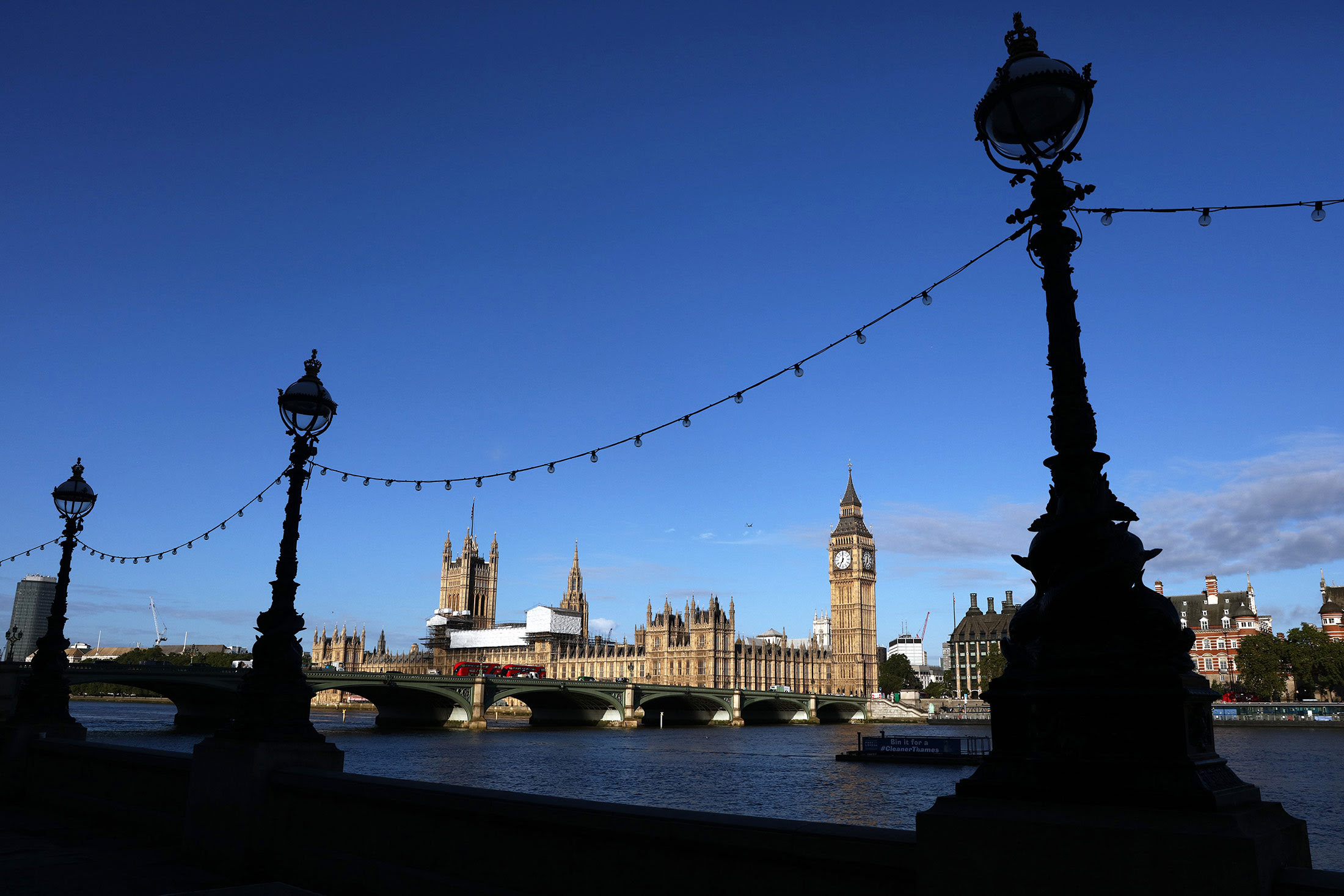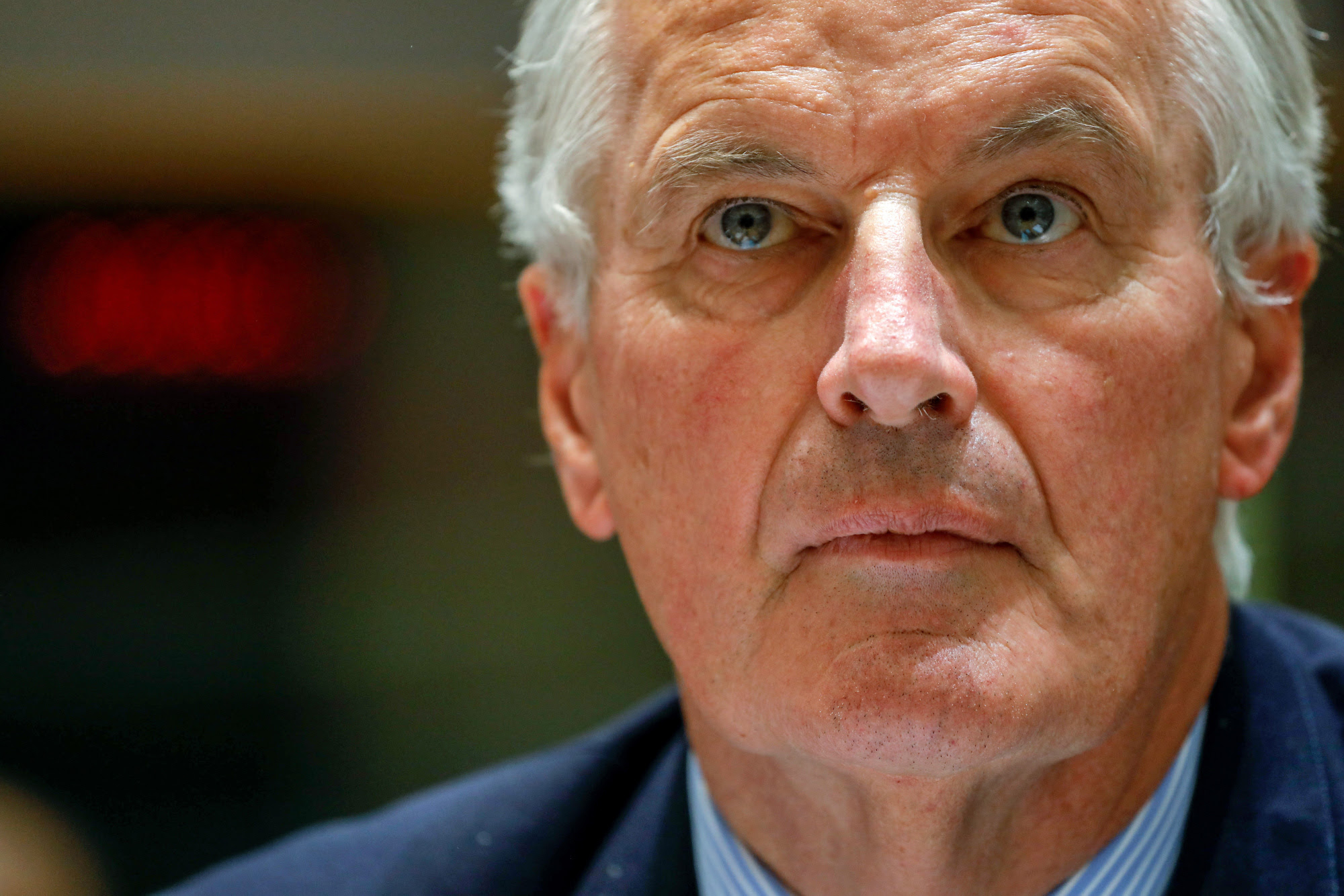Brexit is all about bills again.
The first is, of course, the infamous one the European Union wants the U.K. to pay to settle its financial accounts with the bloc. Newspaper reports at the weekend suggested Prime Minister Theresa May was set to approve paying as much as £50 billion ($68.5 million).
Under that formula Britain would send to £17 billion a year to Brussels for three years after Brexit, ending payments ahead of the 2022 general election, the Sunday Times said. That kind of amount may help break the deadlock between the two sides and pave the way to a trade deal, but Brexit Secretary David Davis called the report “nonsense” and “completely wrong.” The British are seeking a faster pace of talks over the coming months in order to make a deal.

Davis accused the EU of trying to “play time against money” and told the BBC’s Andrew Marr on Sunday that its pressure tactics “looked a bit silly.” Speaking in Washington on Friday, he hinted at the idea of linking the divorce bill to securing a transition from Brexit.
According to the BBC, EU chief negotiator Michel Barnier told a conference in Italy that the EU intends to “teach people” in the U.K. what leaving the single market means. The Telegraph cited Cabinet sources as saying there is a one-in-three chance Britain will leave the EU without a trade accord.
The other bill is the legislative one aimed at converting all existing EU law into British law. Lawmakers head back to Westminster this week for the second reading of the bill, with a vote planned for next Monday. (The government is also expected to release more position papers.)
The Times reported on Saturday that Keir Starmer, Brexit spokesman for the opposition Labour Party, had warned Davis in a letter that unless changes are made to safeguard “crucial rights and protections,” Labour will oppose the bill, which was once known as the “Great Repeal Bill.”
Damian Green, the prime minister’s deputy, used a column in the Sunday Telegraph to warn his Tory colleagues who wanted to remain in the EU to back the bill, or risk handing power to Labour, led by Jeremy Corbyn.
To get up to speed in back-to-school week, Bloomberg’s Rob Hutton is here to help. He was paying attention over the summer, and recaps eight things you need to know as British politicians return to Westminster.
— by Simon Kennedy

Brexit Latest
Tradition Shifts | Interdealer broker Cie. Financiere Tradition said it is considering moving 15 percent of its London broker jobs — some 60 people — to continental Europe in preparation for Brexit. “If their customers are moving, brokers will think twice and move with them,” CEO Patrick Combes said in an interview in Zurich
Cable Trade | Liberal Democrat leader Vince Cable told a Financial Times conference “there is more than a possibility that Brexit may never happen.” He said “tensions within and between major parties” meant there was a “strong possibility” of it being stopped, though the “balance of probability” was that it goes ahead.
Goldman Tapped | U.S. regulators have turned to a top Goldman Sachs Group Inc. executive to help them deal with Brexit. Alan Cohen, who spent 13 years as head of compliance at the New York-based bank, will join the Securities and Exchange Commission as a senior policy adviser to Chairman Jay Clayton, the agency said.
Immigration | Seven out of 10 who backed Brexit think free movement should continue for Europeans with skills, according to an ICM poll for British Future, reported by The Sun.
Johnson on Defense | Foreign Secretary Boris Johnson is to pledge that the U.K. will remain committed to the security and defence of the Nordic and Baltic nations after Brexit. Separately, Nykredit CEO Michael Rasmussen and PFA Pension CEO Allan Polack wrote in Borsen that Copenhagen could become a Nordic finance center thanks to Brexit.
Priced Out | U.K. Trade minister Mark Price, previously the boss of Waitrose, resigned, undermining efforts to line up post-Brexit trade accords
Buyouts drop | The number of management buyouts in the U.K. fell over the last year, said accountancy firm Moore Stephens. It estimated only 80 such buyouts took place in the year to the end of June, down 7 percent on 86 in the prior year.
On the Markets | The pound posted its fourth straight monthly decline versus the euro in August and the outlook for September may not be much rosier with May under pressure to sort out Brexit and bring her government on to the same page.




Comentarios
Publicar un comentario